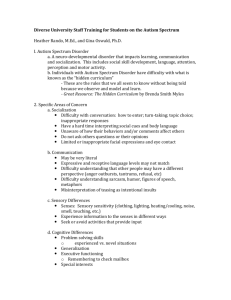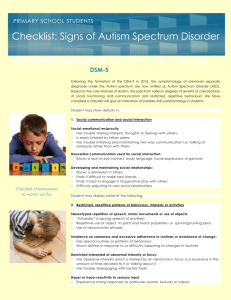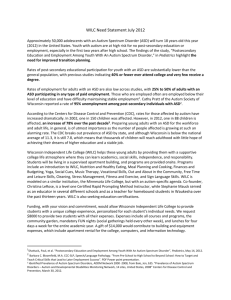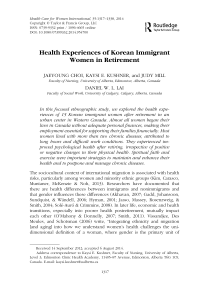KWON, JULIE H., Ph.D., May 2015 Counseling and Human Development Services
advertisement
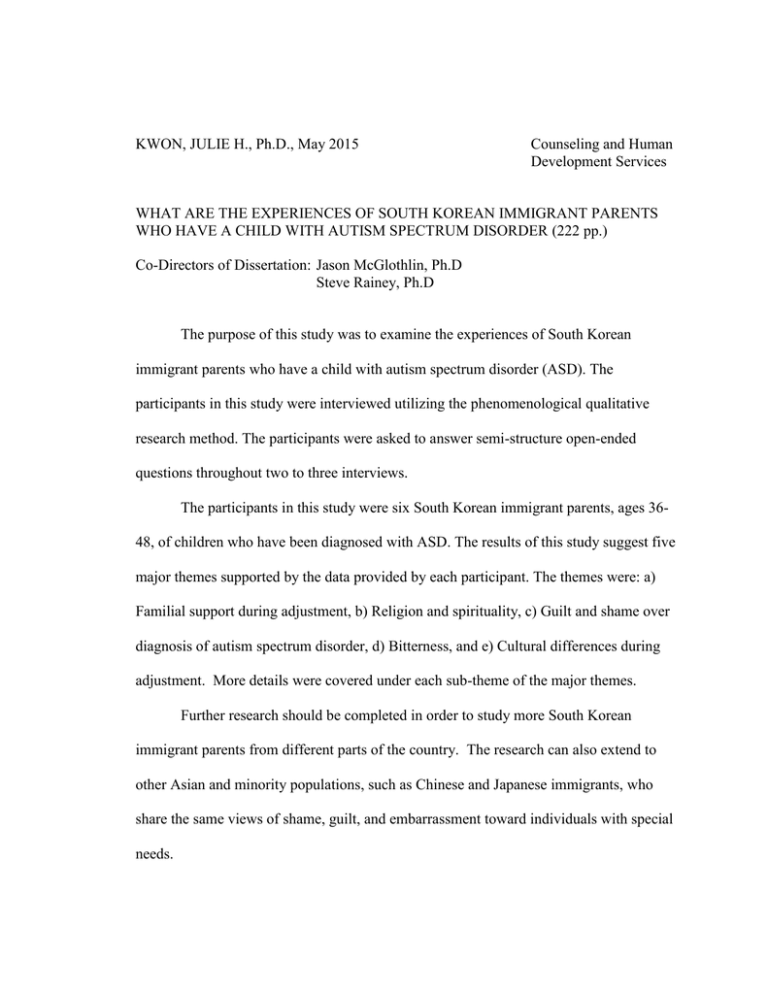
KWON, JULIE H., Ph.D., May 2015 Counseling and Human Development Services WHAT ARE THE EXPERIENCES OF SOUTH KOREAN IMMIGRANT PARENTS WHO HAVE A CHILD WITH AUTISM SPECTRUM DISORDER (222 pp.) Co-Directors of Dissertation: Jason McGlothlin, Ph.D Steve Rainey, Ph.D The purpose of this study was to examine the experiences of South Korean immigrant parents who have a child with autism spectrum disorder (ASD). The participants in this study were interviewed utilizing the phenomenological qualitative research method. The participants were asked to answer semi-structure open-ended questions throughout two to three interviews. The participants in this study were six South Korean immigrant parents, ages 3648, of children who have been diagnosed with ASD. The results of this study suggest five major themes supported by the data provided by each participant. The themes were: a) Familial support during adjustment, b) Religion and spirituality, c) Guilt and shame over diagnosis of autism spectrum disorder, d) Bitterness, and e) Cultural differences during adjustment. More details were covered under each sub-theme of the major themes. Further research should be completed in order to study more South Korean immigrant parents from different parts of the country. The research can also extend to other Asian and minority populations, such as Chinese and Japanese immigrants, who share the same views of shame, guilt, and embarrassment toward individuals with special needs.

